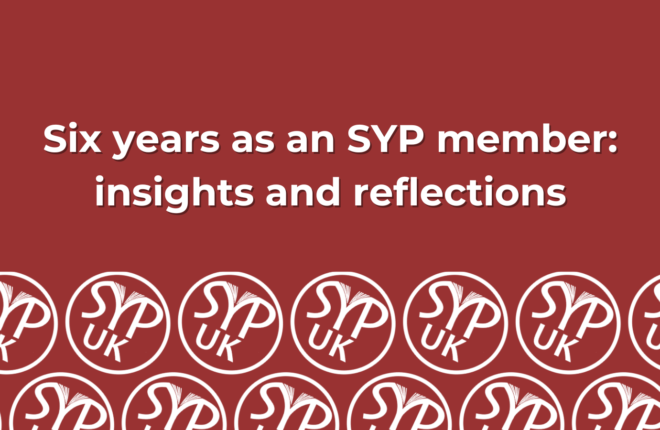
The Usborne Academy: Part Two
Posted on September 3, 2018 in UK
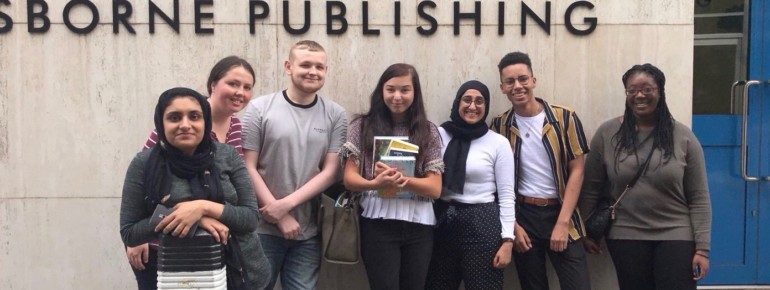
A few weeks ago we spoke to Anna Howorth, Director of Global Branding and UK Marketing at Usborne Books, about The Usborne Academy (follow the link to sign up for updates about the company’s plans for the scheme in 2019). This scheme was set to bring eight people from diverse backgrounds around the UK to their offices for a week. What was special about this placement was they were going the extra mile. Not only were the company paying the London Living Wage whilst the eight were with them, but also all travel and accommodation expenses. Those selected have now been and gone, and we caught up with one of them to discuss their experiences, what they thought of such initiatives and how they could help the industry change for the better.
A huge thank you goes out to Nicola Torch for the below.
###
I think I can confidently speak for the group as a whole when I say that the week spent at Usborne was not only incredibly insightful and thought-provoking, but also exceptionally exciting and rewarding. Not only did we get to experience the professional side of the company, we were also treated to many socials throughout the week which allowed us to converse in a more informal setting with Usborne staff. These socials ranged from a pub quiz (which still holds agonizing memories from our narrow defeat); to a book signing with Holly Bourne for her new novel ‘Are We All Lemmings and Snowflakes?’; to a night with the Children’s Book Circle at their Summer Party.
Each of us received a personalised timetable tailored to our specific interests which was invaluable in terms of getting a feel for which department was really the right fit for us, while also challenging us to become adaptable within departments that weren’t necessarily our match. It was an unbelievable experience for all involved and I would like to extend the warmest of thanks to everyone at Usborne for giving all eight of us a week we will not forget a hurry!
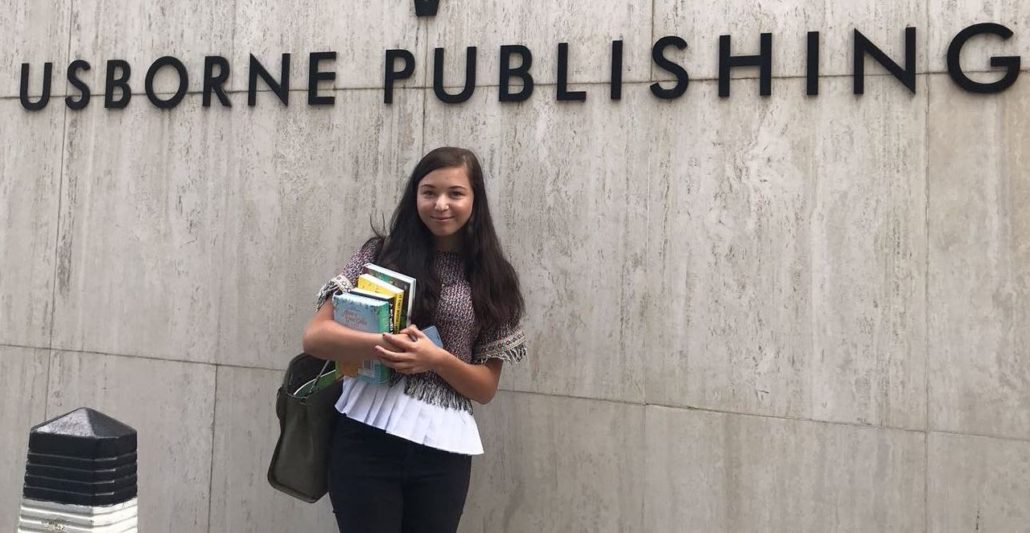
Anna Howorth mentioned how they wanted to reach people under-represented in the industry, or those who’d never considered it as a career option (as many don’t unless they know someone within it), therefore had you considered publishing prior to applying for this placement?
As a very recent graduate from the University of St Andrews with a degree in English Literature, I personally had already considered publishing as a potential career. I am about to start a postgraduate degree in publishing so in this respect, the placement came at the perfect time to see if the publishing industry truly was for me. I had never worked within a publishing company before this, so it was really eye-opening to actually see the workings of everything first-hand rather than just hearing and reading about it – it definitely confirmed that the publishing industry is where I want to work after my Masters.
It was also interesting to work within a company that focuses exclusively on children’s literature as I think most of us hadn’t even considered that as a potential avenue. Learning about the true scope and heterogeneity of children’s publishing was fascinating and definitely gave us all food for thought when deciding which area of publishing to go into in the future.
With all that being said, however, there was a lot of variety amongst the eight of us and it would definitely be an overstatement for me to say that all of us were completely set on publishing, both prior and after the placement. Not only did our ages range from 18-22 – with some just about to begin their first year of university and others in the middle or nearing the end of their degree – but we all also came from a wide variety of backgrounds, locations and all had slightly different interests in potential jobs. The placement was ideal in the sense that it managed to cater for young people who were all in slightly different places of their education and who all wanted slightly different things from their time there.
Was being within a publishing company for this time what you expected it to be? For example, were there any tasks you saw undertaken you wouldn’t have known about prior to this opportunity?
I think we were all taken aback by just how friendly and welcoming the Usborne offices were – every single person truly went above and beyond to ensure that we all got as much from the experience as we could. In a practical sense, the fact that all Usborne’s non-fiction books are written in-house by writers and editors was really interesting to learn about. It was an aspect few of us had heard of and learning about a process which makes Usborne stand out in such a way was really exciting.
I sat in on a scheduling meeting within the Fiction Editorial department and I was so amazed by just how much forward planning goes into getting titles out there. The quick recall of dates from memory of where every single book was in the production schedule was so fascinating to watch, especially when I considered how many different departments sat in on the session which made for a real collaborative effort.
What a few of the group also picked up on was how all-encompassing some positions were. While our placement for the day may have been in sales, for example, it was interesting to notice that the role also incorporated aspects of marketing and publicity. This was where the interconnected nature of publishing really came to light and we were fascinated to understand which departments worked closely together and how they managed to do this successfully.
How was it going in with seven others at the same time? Was that encouraging because you could support each other, or did you ever feel competitive?
Going in as a group was actually one of the most enjoyable parts of the week. Having the support of seven other people really put us all at ease when going into a completely new environment. Before the placement began, we had introductions via email and Usborne encouraged us to get in contact properly before we all arrived. We eventually started up a WhatsApp group which meant that we could all get to know each other a little bit more before the week began. This helped a lot when we first arrived in London as we could all help each other find our accommodation, meet late arrivals at the station and all went out for dinner in the evening to celebrate the start of an amazing week.
We were all even staying along the same corridor in our accommodation so there really was a close-knit feel to the group. During the placement itself, we all just really supported each other and were interested in what we’d all learnt and experienced – we would meet up during lunchtimes and chat about what we’d all been working on that morning and where our next department was in the afternoon. During the day we’d go around by ourselves and, more often than not, there would only be one of us in each department at a time. This, once you’d got over the introductory nerves, was really helpful as it meant we could just concentrate on getting the most out of it for ourselves and really throw ourselves into it all.
Do you think it is feasible for all companies to offer placements such as this one? Not just the big publishers of the world, but even the smaller ones?
I think the idea of diversifying the publishing industry is such an important one and so in this respect, I believe that companies should do their utmost to offer schemes that reach far and wide. However, I don’t think schemes should simply be carbon copies of others. What was noticeable about this placement specifically was just how personal and how close to the Usborne ethos it was. But I do think that the fundamental concept of offering paid experience to a diverse group of enthusiastic people is something which companies could and should find funding for. Perhaps not to the full extent as this placement specifically, admittedly funding eight people for an entire week is costly, but even the smallest proactive engagement in sharing expertise to the next generation of publishers makes a huge difference.
Even the social events outside of the office were great chances to learn about the industry – one of the highlights of the week was attending the Children’s Book Circle Summer Party as it provided an informal setting to meet and chat with industry professionals from a wide range of areas. Obviously this was a social event rather than a paid company position so perhaps finding new and unique ways of getting people interested in the industry is what smaller companies could focus their efforts on if they can’t feasibly offer what the big companies can. I think a lot can be learnt from both sides if the industry starts to look at paid experience in a new light; of course it benefits those obtaining the experience itself but I do not believe for a second that it is simply a one-sided enterprise.
BIG ONE: Will schemes like this address the ‘elitism issue’ within this industry, and if so how?
I’d say it’s definitely a starting point. Of course, the more this industry opens up and becomes less opaque through shifting values away from exclusivity towards an environment that champions inclusivity and diversity, then the more progress it will make in inspiring a new generation of publishers that are all given the same consideration and opportunity.
Introspection is never a bad thing and I believe that over the past few years the industry has made real strides towards addressing the elitist issue. Not only through BAME placement schemes, randomly selected internship placements which do not take into consideration your background, academic history or geographical location, but also by trying to change the way people on the outside perceive the industry.
Needless to say, any change takes time. There is no overnight solution and I don’t necessarily believe that there should be – surely fundamental change such as this is better served by well-thought through measures that will last for the long term rather than a quick fix with a short shelf life. Hopefully through schemes such as The Usborne Academy, the industry starts to eradicate barriers to entry so that people who are currently under-represented begin to feel that this exciting and rewarding industry has room for all. After a phenomenal week at The Usborne Academy, I have faith in the sentiment that one day the industry itself will be just as diverse as the books it produces.
###
Useful links
The Usborne Academy page: Follow this link to join the mailing list to hear about news on next year’s Usborne Academy scheme.
Usborne’s blog page: Here you will find a blog post from Usborne about the experience, and look out for an IPG article in the near future covering the scheme.


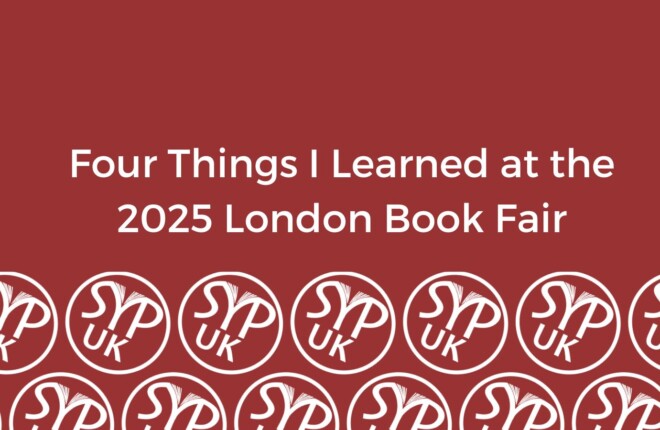
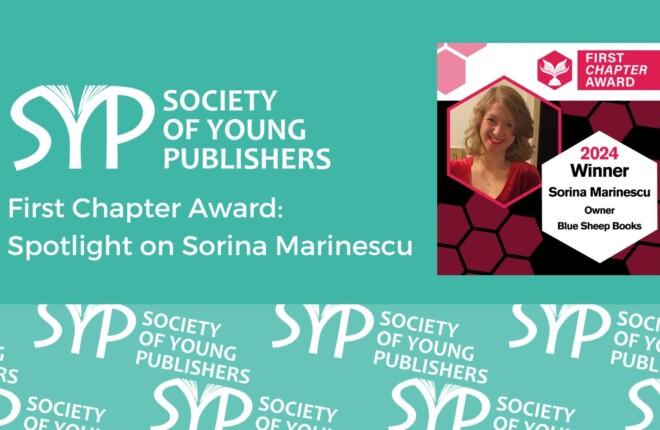
 Listen to the podcast
Listen to the podcast  Explore the Youtube channel
Explore the Youtube channel